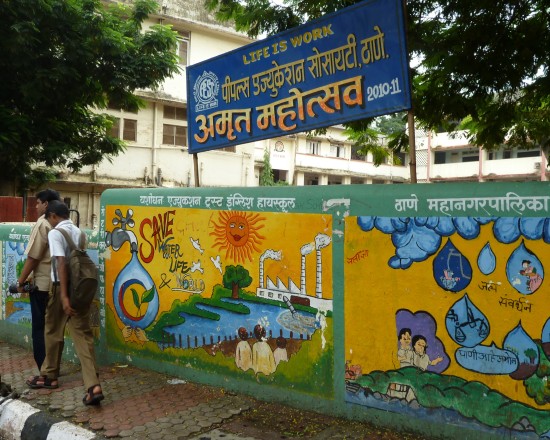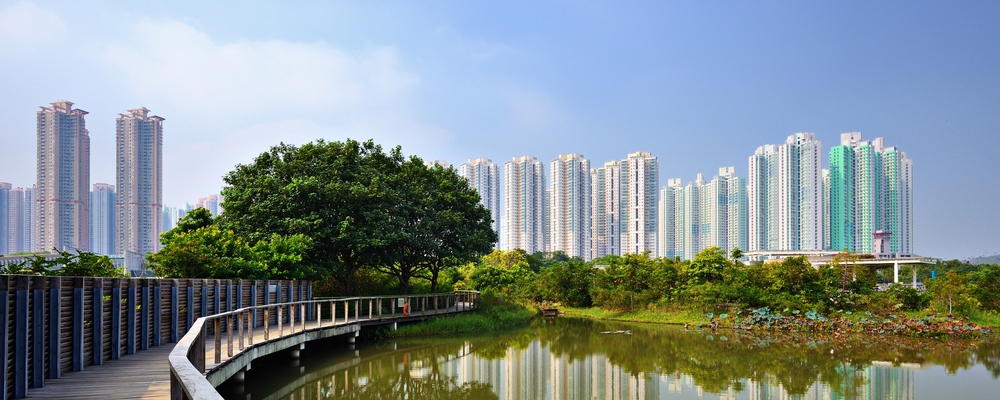Andrés Luque-Ayala
Durham University, UK
Between the 6th and 8th of November of 2014 I had the opportunity to participate in the 2nd Urbanization and Global Environmental Change (UGEC) conference in Taipei. I was asked by the organizers to be a member of its closing panel, tasked with supporting the development of a set of summary messages. Somehow, the conference’s tag line of Science, Synthesis and Policy hinted to the type of messages that we were looking for. But admittedly, after three days of being at a conference characterized by a huge diversity of themes and academic disciplines, finding common messages was a daunting task. Yet, throughout the conference, there was one key idea which resonated with me very strongly: a very powerful recognition of the political nature of the interface between urbanization and global environmental change. What this is telling us is that the environmental and social challenges that are brought about in and by the urban—through contemporary processes of transformation—are challenges that should be examined not only from scientific and technical perspectives, but also from a political perspective.
What do I mean by ‘political’ in this context? To answer this question it is probably useful to go back to the very basic definition of politics as the practice and theory of influencing other people, particularly at civic level; as a discussion around collective priorities and the management of collective affairs; as a discussion around rights and responsibilities, as well as around power and the distribution of resources. Here it is useful to remember the Greek notion of the polis, which is precisely what brings together the community of natural and social scientists as well as practitioners gathered around UGEC: the urban. Therefore the political is the space from which we can imagine and put in place different collective—urban—futures.
During the conference, urbanization and global environmental change as a matter of politics came across in a multiplicity of ways. It was made clear through the plenary sessions, from Alejandro Nadal’s call to consider macroeconomics and issues of political economy in our environmental practice (Nadal, 2014) to Federico Caprotti’s invitation to explore the benefits and technologies of digital urbanization whilst critically interrogating the promises of the smart city (Caprotti, 2014). It also came across in John Robinson presentation on the interface between science, sustainability and policy, where he called for a science that feeds social mobilization, social movements and social innovation as a productive way of impacting policy (Robinson, 2014); or in Hsin-Huang Hsiao’s account of the environmental history of Taipei, pointing to how decisions in favor of economic growth affected both the environment and the quality of life of the population, and where he asked us, in his own words, to avoid being too romantic of the idea of sustainable futures (Hsiao, 2014).

Beyond the plenaries, the political nature of the urbanization and global environmental change interface was present in the many debates, discussions and parallel sessions that made up the conference itself. Karen Seto’s call to consider history in the way in which scientific and analytical frameworks operate was much welcomed; a call which, I would add, implies recognition that the present condition is the result of historical processes, many of which have been characterized by relationships of power and domination. Over the course of parallel sessions, scientists based across the world explained how historical and political considerations shape the environmental processes they study. During discussions, colleagues working in India, Indonesia and Vietnam highlighted the environmental challenges of a development model that is based in consumption; challenges that become more apparent in the context of rapidly growing middle classes, such as in Thane, a city adjacent to Mumbai, where my own research points to apparent contradictions in sustainable urban growth models where environmental gains obtained by small scale renewable energy projects are quickly absorbed by broader increases in energy consumption due to changing lifestyles. Ideas around justice were broadly discussed, for example, through a call for engaging with climate change as a matter of moral responsibility (Fuller, 2014). Colleagues based in Chile explained the difficulties brought about by an early phase of privatization of environmental resources—water in this case—, where local governments cannot buy back the rights to local resources in order to service their citizens because these are now prohibitively expensive (Barton, 2014). Mexican colleagues pointed to the impact that diverting water from an ever growing Mexico City has had on surrounding rural communities, and the political resistance that indigenous groups have developed in this context (Avila-Garcia, 2014). Similarly, practitioners working in sanitation and water quality in urban settlements in Zambia highlighted the extent to which tenure security—the constitutional or legal guarantees that maintain us on the land we live—is a key element for the urban adaptation processes (Kawanga, 2014).

What does this mean for an academic community gathered specifically to think about urbanization and global environmental change? It means finding tools that enable us to engage with these discourses, revelations and debates; tools which enable us not only contribute to policy, but also to broader political debates; tools that allow us to re-invent collective futures. It means embracing a language that allows us to simultaneously discuss these issues from natural and social science perspectives. Likewise, it means thinking critically about structural conditions whilst examining the role of markets, the state and forms of ownership. Most pressingly, it demands from us an understanding that ecological flows are not only resource flows, but also flows of power. One of many possible ways of acknowledging this is by exploring new epistemological and ontological entry points to understand the relationship between urbanization and global environmental change. In essence, identifying new ways of knowing and conceptualizing the nature of beings and the nature of nature (c.f. Bennett, 2010)—as exemplified by Bolivia’s legal conceptualization of nature, influenced by traditional understandings of nature as the Pachamama, where nature is seen as an active subject of a community and therefore, like any other subject, endowed with a broad set of rights.
I would like to finish with a few practical ways in which we can move in this direction. First, the need for—and value in—engaging more with academics who are working on a critical social science around the interface between the urban and the environment. Particularly, it would be important to continue engaging with urban political ecologists and their understanding of the city as a hybrid socio-natural ‘thing’ full of contradiction and conflict (Swyngedow, 1996). But also, as environmental researchers, to engage with novel ways of understanding the urban informed by post-structuralist debates, such as assemblage urbanism (e.g., McFarlane, 2011), cosmopolitan urbanism (e.g., Robinson, 2006) and subaltern urbanism (e.g., Roy, 2011). Second, the need to consider the role of capital flows and the environmental implications of finance led economic systems. This includes the possible carbon lock-ins that could emerge out of the financialization of urban infrastructures, the high—or low—carbon pathways that are crafted through specific financial technologies or economic rationalities, and how the current geographies of money and finance could stand on the way of increasing adaptive capacity in cities. And finally, the urgency in examining the existing tensions between modes of production, forms of consumption and the environment. Such analysis is particularly relevant in the context of rapidly growing urban middle classes in Asia and Africa, but certainly not exclusive to such locations, as its relevance is very much valid for Latin America, Australia and the Global North despite their long-standing urbanized nature. Through such an enhanced lens, a collective analysis of urbanization and global environmental change is likely to acquire the tools needed for making science into both policy and politics, and in this way challenge and reimagine dominant development modes.
Dr. Andres Luque-Ayala is a post-doctoral research associate at Durham University in Durham, UK.
Website
Mail
References
Avila-Garcia, Patricia (2014). Global change and social conflicts over water in Mexican cities (PPT). Towards livelihood security and social justice: The urbanization, infrastructure and governance nexus [parallel session]. UGEC Conference, Taipei (6-8 Nov).
Barton, Jonathan (2014). No picks, no shovels, no helmets: Local governments at the coalface of adaptation to water stress in Chile (PPT). Towards livelihood security and social justice: The urbanization, infrastructure and governance nexus [parallel session]. UGEC Conference, Taipei (6-8 Nov).
Fuller, Sara (2014). Positioning the university as an urban climate change actor: Governance, responsibility and opportunity (PPT). Contested agendas or aligned objectives? Intermediation and the role of non-state actors in the low carbon urban transition [parallel session]. UGEC Conference, Taipei (6-8 Nov).
Robinson, Jennifer (2006). Ordinary cities: between modernity and development, Routledge, London.
Header Image: Hong Kong, China. Credit: Sean Pavone/Shutterstock.com


One thought on “Urbanization and global environmental change: A matter of politics?”